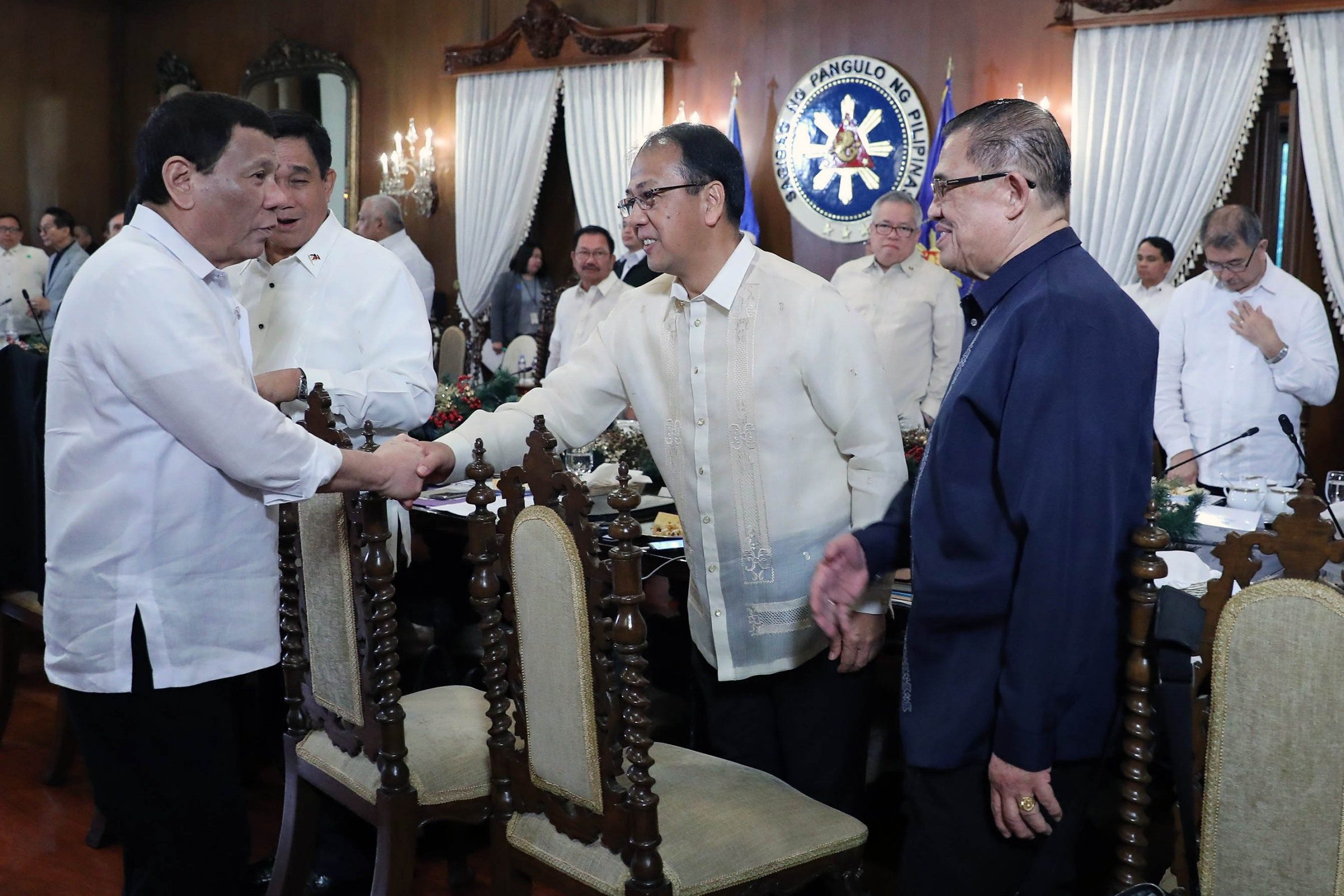SUMMARY
This is AI generated summarization, which may have errors. For context, always refer to the full article.

MANILA, Philippines – It’s not just Leftist recruitment that requires the presence of police and soldiers in university campuses. It’s also necessary to prevent school shootings like those making headlines in the United States.
This was the argument made by Presidential Adviser on the Peace Process Carlito Galvez Jr on Tuesday, August 20, during a Malacañang news briefing.
“International na ‘yung public shooting. Nakita n’yo sa US, ano tina-target nila? Schools…Nakita natin New Zealand, Australia, even sa Europe. US, in 24 hours ilan ang namatay? Twenty na mga innocent civilians. Karamihan doon nasa schools. Do you want na maghintay pa tayo?” he asked.
(Public shooting has become international. Did you see in the US, who do they target? Schools…We saw in New Zealand, Australia, even in Europe. In the US, how many died in 24 hours? Twenty innocent civilians. Many of those were in schools. Do you want us to wait for that?)
He said this is why the government should “look into” amending the 1989 agreement between the University of the Philippines system and Department of National Defense (DND) which prohibits any military or police unit from entering its campuses without notifying school officials.
“If a shooting happens in a school, you will call it a military failure, security failure. In the first place, you don’t allow us to be there. Now, the security forces will look bad,” said Galvez, himself a former military chief.
But the 1989 UP-DND agreement allows for police and military presence in “emergency” situations and “cases of hot pursuit.”
It is being invoked now by some quarters after administration-allied senator and former police chief Ronald dela Rosa said he wanted increased police patrols at the Polytechnic University of the Philippines (PUP) to deter communist recruitment in the state university.
Interior Secretary Eduardo Año, another retired military chief, also said he was looking into such a measure. In contrast, Presidential Spokesman Salvador Panelo doubts this would be effective in curbing Leftist recruitment.
UP students planned to stage a walkout on Tuesday to protest police and military presence in their campuses, saying it is “equivalent to martial law.”
UP student regent John Isaac Punzalan said it would lead to “massive surveillance and monitoring” of students, faculty, and officials, especially those critical of the Duterte government.
School shootings like those in the US that involve lone shooters specifically targeting the massacre of students and faculty in schools remain rare in the Philippines.
But Galvez also thinks police and military presence in campuses will deter communist recruitment among students.
“We have to allow, because if we will not allow it, the people will be deprived of the security. We see that in the recruitment of students, their adventurism and activism is being exploited. The capability of security forces is restrained,” said Galvez in a mix of English and Filipino.
In the same press conference, the peace adviser said he backs amendments to the Human Security Act being pushed by President Rodrigo Duterte’s security advisers.
He also supports Interior Secretary Año’s call to revive the anti-subversion law, saying it will boost government efforts to crack down on the communist insurgency. – Rappler.com
Add a comment
How does this make you feel?
There are no comments yet. Add your comment to start the conversation.